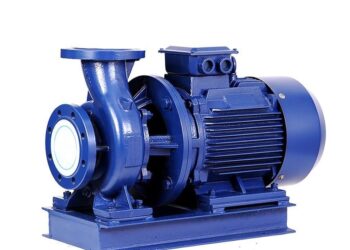Unions have been a defining factor within the construction sector, with unionized construction workers advocating for fair compensation, safe working conditions, and other benefits. The relationship between construction payroll and unionized workers has its challenges. This blog post will explore construction payroll issues related to unionized construction workers. It will also analyze fair and safe working conditions in payroll service for contractors.
Role of Unions in Construction
Before we talk about payroll, let’s first understand how unions work in the construction industry. Unions have been around for a long time to fight for workers’ rights and make sure they get treated fairly. In construction, unions negotiate with employers to set pay, hours, and safety standards. These agreements are called collective bargaining agreements, or CBAs for short.
Working in construction as part of a union can be pretty easy. You get paid more and have better health insurance, retirement plans, and job security. Handling all the payroll stuff can be tricky and cause some problems.
Construction Payroll Issues Related to Unionized Workers
- Reporting and Documentation
Updated records are essential in dealing with unionized workers. This means you must keep track of everything from your workers’ hours to the benefits you’re paying them. Maintaining these records accurately will protect you from legal disputes. So, ensure a good payroll system keeps everything organized and accurate. This will help you avoid problems and keep your union partners happy.
- Jurisdictional Issues and Multiple Trades
Different trades and crafts are involved in construction projects, each with its union representation. Issues regarding which trade or craft is responsible for specific tasks can arise, causing problems with payroll. This can happen if workers are wrongly classified or duties are assigned to the wrong trade, resulting in wage discrepancies and conflicts. To avoid these issues, it’s essential to establish clear protocols for resolving disputes and defining responsibilities, making payroll administration run more smoothly.
- Workforce Mobility and Travel Pay
You might have to go to different places for work when working on construction projects. This can make it harder to get your payroll right. If you’re part of a union, you should get paid for travel time and the cost of your meals and accommodation. This is all set out in your agreement with the union and the law. Employers need to ensure they get these payments right so they don’t break any rules.
- Compliance with Changing Regulations
Maintaining the latest labor laws and payroll regulations can take much work for contractors, especially on unionized construction projects. The rules are constantly changing, so staying in the know is essential. Monitoring prevailing wage rates and other standards might be a challenging task. But to ensure everything is on the level, it’s necessary.
- Economic Challenges and Collective Bargaining
During tough economic times, unionized construction workers may struggle to negotiate good deals for themselves. Often strapped for cash, contractors may try to save money by cutting wages and benefits, creating tension during negotiations. Balancing the financial success of construction projects with the needs of unionized workers can be tricky when managing payroll issues in challenging economic conditions.
Strategies for Mitigating Construction Payroll Issues
Addressing construction payroll issues related to unionized workers requires proactive measures and collaboration between contractors, unions, and other stakeholders. Consider these strategies to overcome these issues:
- Invest in Strong Payroll Systems: Contractors should invest in payroll service for contractors capable of handling the complexities of unionized construction payroll. These systems should facilitate accurate record-keeping, compliance with prevailing wage laws, and efficient reporting.
- Open Communication: Foster open communication between contractors and unions. Establishing channels for dialogue can help address issues promptly, prevent misunderstandings, and build trust.
- Collaboration on Technology Adoption: Work collaboratively with unions to adopt technology solutions for payroll management. This may include joint efforts to train personnel, ensure data security, and address concerns related to technology adoption.
- Proactive Dispute Resolution: Develop protocols for resolving disputes, especially those related to jurisdictional issues or benefit contributions. Proactive dispute resolution can prevent conflicts from escalating and disrupting construction projects.
- Align Payroll Practices with Industry Best Practices: Benchmark construction payroll practices against industry best practices. Standardized processes can enhance efficiency, reduce errors, and ensure compliance with prevailing wage laws and regulations.
Conclusion
From prevailing wage laws to fringe benefits, jurisdictional issues, and technological advancements, the geography of construction payroll is continually evolving. Contractors can mitigate these challenges by adopting proactive measures, promoting open communication, and adopting technology. Ultimately, successful construction payroll management contributes to the well-being of unionized workers. If you are looking forward to payroll service for contractors, Payroll4Construction is a trusted and reputable brand in the software development industry.













